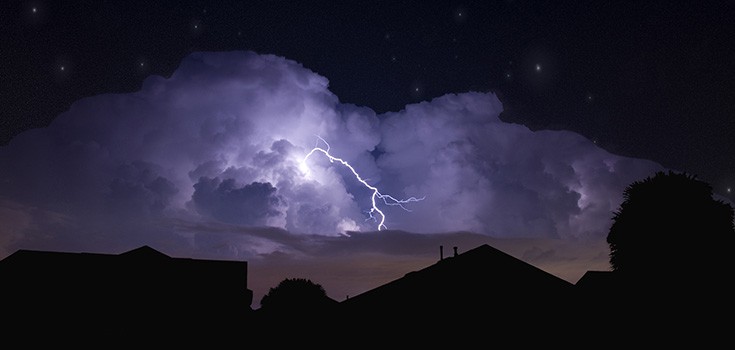5 Ways to Prepare for Hurricane Sandy or Any Other Disaster

Hurricane Sandy is set to make landfall this week. For those in the northeast, this brings preparedness to the mental forefront. And not only should you be prepare for Hurricane Sandy, but any other disaster or complication that could happen in the future. There are a number of concerns you should have when facing any major crisis, and whatever the scenario, you are the one responsible for being prepared.
The Importance of Preparation
This is being heralded as the worst storm in 100 years, estimated to cause billions in damages. Whether this is hype or not, it should bring up many questions: Am I prepared for a mid/long-term survival scenario? Have I formed a real plan at all? Could I survive with what I have right now? What complications could arise?
If any of these have questionable answers for you, then you should also ask not only what you can do to prepare for hurricane Sandy, but any disaster. Here are 5 essential things to consider:
1. Water
Most people take water for granted, especially when it is pouring out of a faucet. But without clean, consumable water, you simply cannot survive a major crisis. Having ample stores of clean water, as well as being able to purify contaminated water is essential for any long term survival situation. Having access to local fresh water springs or investing in an atmospheric water generator may also prove invaluable (make sure to buy a generator). Even engineering a water catch may prove useful if you lack adequate and reliable means to get water consistently.
In summary:
- Store any clean water you currently have in gallon jugs (glass is preferable to not leach chemicals), old bottles, or even your bathtub in an emergency.
- Invest in an atmospheric water generator to create water out of the air, but always remember you may need a power generator in the event of long-term power outage.
- Learn how to set up a rain water collection tarp outside and use a gravity-based water filter to clean up the water.
2. Food
In the age of supermarkets, many people have forgotten where the food they eat comes from. If a crisis ensued that prevented you from buying food, would you be able to survive? Most people don’t have even a month’s worth of food supplies waiting for them in the event of a crisis. Despite this, even the ancients knew how to store and stockpile food supplies for famines or disasters in the future. Many prudent people still practice canning their food and keeping it stored for whenever they need it. Learning how to can and dehydrate your leftovers is inexpensive and allows you to have a plan for your family. You should also stock up on canned goods, as well as basic food supplies that you can easily store and cook. Many companies also sell long term storable foods, which could prove invaluable for long term survival.
Some great storable foods are:
- Honey
- Coconut oil
- Rice
- Sea salt
- Apple cider vinegar
- Liquid
turmeric
3. First Aid
In a disaster, anything can happen. In the event of an accident, you need to be prepared to respond to any sort of complication from physical injury or otherwise. Having bandages, antiseptics, sanitizers, herbal remedies and medicines, as well as competent first aid knowledge will save a life should you find yourself in such a case. In addition to basic items like bandages and wraps, your first aid kit should include:
- Oil of oregano
- Colloidal silver
- Liquid
turmeric - Nascent iodine
- Vitamin D3
4. Light
If the power goes out, then having good light becomes necessary. Having conventional lighting methods like candles, matches, lighters and lanterns in supply is essential. Having battery or crank powered flashlights and LED devices can also be extremely useful, and less hazardous than fire. You want to keep these close at hand in the event of power outages. You can also purchase battery-powered lights equipped with sensors that will illuminate your front yard for a very low price. This will aid in fending off thieves, or at least identifying them first.
5. Ultimate Preparedness
Keeping these necessary things at hand ultimately makes you self sufficient in the event of a disaster — something that few people can boast. Should a crisis come, you are ultimately the one responsible for your survival, and it’s better to have these things and not need them, then to need them and not have them.
